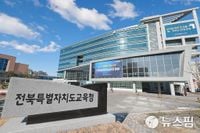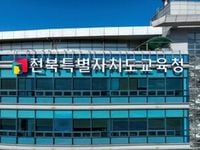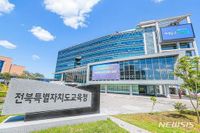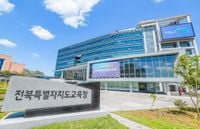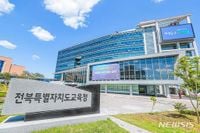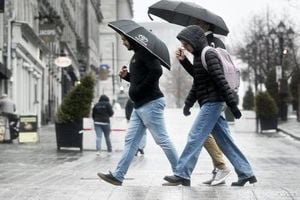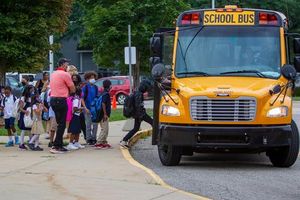The Jeonbuk Education Office has announced the establishment of nine Korean language classes across five regions in Jeollabuk-do, aimed at supporting multicultural and foreign students. This initiative is a response to the growing number of students from diverse cultural backgrounds who require assistance in learning the Korean language and understanding Korean culture.
On March 28, 2025, the Jeonbuk Special Self-Governing Province Office of Education revealed that the new classes will be located in areas with a high concentration of multicultural students, specifically in Jeonju, Iksan, Gunsan, Jeongeup, and Gimje. The schools involved include Jeonju Geumpyeong Elementary School, Iksan Elementary School, Iri Baekje Elementary School, Saemangeum Elementary School, Soryong Elementary School, Hansol Elementary School, and Wolseong Elementary School.
Each of these schools will provide dedicated classroom spaces where teachers will offer intensive education in both the Korean language and Korean culture. The classes are designed for multicultural and foreign students who have significant difficulties with Korean language communication skills. Each class will typically consist of around ten students, although the number can be adjusted flexibly to accommodate temporary increases in enrollment.
The education period for these classes is set to last between six months and two years, after which students are expected to return to their original classes. This structured approach aims to ensure that students not only learn the language but also feel comfortable and integrated into the school environment.
In preparation for the launch of these classes, the Jeonbuk Education Office conducted intensive training for school administrators and teachers in February 2025. This training was designed to ensure that the staff are well-equipped to handle the unique challenges that may arise in teaching multicultural students.
Seo Geo-seok, the Superintendent of Education, emphasized the importance of this initiative, stating, "The operation of Korean language classes will enable multicultural students to quickly acquire Korean language skills and cultural understanding. By providing systematic educational support tailored to the students' characteristics, we will assist them in adapting to school life and building peer relationships."
This initiative comes at a time when the multicultural population in Jeollabuk-do is on the rise. According to data from the Ministry of Public Administration and Security, residents with foreign backgrounds, including foreign workers, marriage immigrants, international students, and overseas Koreans, account for 4.8% of the total population in South Korea. In Jeollabuk-do specifically, the multicultural population stands at 4.2%, with 13,885 children from multicultural families and foreign residents.
The establishment of these Korean language classes reflects a broader commitment by the Jeonbuk Education Office to support diversity and inclusion within the educational system. By focusing on the needs of multicultural students, the office aims to create an environment where all students can thrive.
As the number of multicultural families continues to grow, it is becoming increasingly essential for educational institutions to adapt and provide the necessary resources to support these students. The Jeonbuk Education Office's proactive approach in establishing Korean language classes is a significant step towards fostering an inclusive educational environment.
In conclusion, the introduction of these Korean language classes is a vital development for multicultural students in Jeollabuk-do, offering them the opportunity to learn and integrate into Korean society effectively. With dedicated teachers and a structured curriculum, these classes are poised to make a positive impact on the lives of many students.
